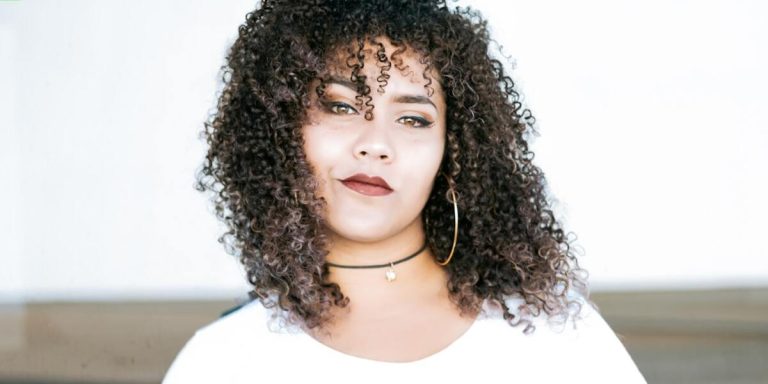Hair Loss Menopause Treatment: Effectual Strategies for Regaining Hair Health
Hair loss during menopause is a challenge that many women face. This article will delve into the factors behind this phenomenon and discuss effective hair loss menopause treatments, to help you regain your hair health.
Menopause signifies a significant shift in a woman’s hormonal profile, leading to various changes including thinning of hair or even balding in some cases. Understanding these adjustments can assist with determining an appropriate treatment strategy for managing and reversing such conditions related to menopausal-induced hair loss.
Did you know?
Did you know? Almost 40% of women experience visible hair loss by the time they’re 40, and for many, it becomes apparent during menopause – a phase that dramatically impacts hormones linked to hair growth.
Understanding Hair Loss During Menopause
Menopause signals a time of significant hormonal changes in the female body, which often result into various unexpected occurrences like hair thinning or even loss. This transformation can be quite disconcerting for many women who have prided themselves on their previously lush locks all through life.
Hair loss during menopause is primarily due to decreasing levels of estrogen and progesterone – two hormones that help hair grow faster and stay on the head for longer periods. When these hormone levels drop, it allows testosterone (which promotes facial hair growth) to increase relatively. That’s why some women may notice more hairs sprouting from places they would least want them—like their chin or upper lip—even as less grows where it’s desired—the scalp.
However, 2023 has heralded advanced scientific researches leading towards new horizons in managing this issue effectively with specialized “hair loss menopause treatments”. These comprise both natural remedies concentrating on diet modifications supplemented by certain medicinal herbs known for promoting healthy follicle functions; along with clinical approaches involving topical applications or procedures that invigorate dormant follicles back into action & stimulate regrowth.
Different solutions work better under diverse circumstances depending upon individual anatomical needs but fear not! With proper consultation from seasoned professionals coupled with precise diagnosis one can navigate smoothly through this testing phase without compromising much on their adorned tresses’ original charm.
Causes of Menopausal Hair Thinning
Hair thinning during menopause can be quite unsettling for many women. The causes behind this change are primarily hormonal, with dips and rises often leading to hair loss or thinness.
Firstly, lower levels of estrogen during menopause mean less production of collagen and oils that keep the scalp healthy. This could leave your hair dry and brittle, making it more prone to breakage and falling out. Additionally, declining estrogen allows testosterone to increase relatively in presence causing a shift in your body’s hormone balance which could lead to the follicles shrinking over time resulting in thinner strands.
Secondly stress is another common factor contributing towards this condition as anxiety triggers inflammation around your follicles possibly hindering their ability for normal regrowth cycles.
Premature menopause may also serve an unexpected cause where you might notice increased shedding far earlier than most women typically do due to abrupt changes within ovarian functions potentially robbing natural defense mechanisms against balding tendencies rapidly too soon.
Hormonal Changes and Their Impact on Hair Growth
Menopause marks a significant period in every woman’s life. It’s the menstrual cycle’s final stage, thereby bringing about numerous physiological changes to our bodies. One such transformation that often goes unnoticed is related to hair growth.
The hormone estrogen plays an essential role in maintaining the health and vitality of your hair follicers. However, during menopause, estrogen levels significantly drop leading to variations in your normal hair pattern.
This hormonal fluctuation isn’t something you have control over but how it affects your hairs’ health – there are diverse means for its mitigation! Fortunately today; we live at a time where medical advancements offer various promising solutions specifically catered towards ‘hair loss menopause treatment’.
Firstly, Hormone Replacement Therapy (HRT). This form of therapy seeks to counterbalance declining hormones by introducing them back into your system artificially. Numerous studies validate HRTs efficacy not only with promoting healthier locks but also making existing ones stronger!
Secondly: Topical Minoxidil application has been clinically proven effective against female-pattern baldness commonly associated with menopausal symptoms due to hormonal imbalance.
Effective Treatments for Menopausal Hair Loss
As menopause begins, many women experience an unfortunate side effect – hair thinning or loss. This can be a distressing time as hormones fluctuate and estrogen levels decline, leading to changes in the body that are often quite visible. But worry not!
Advances have been made in treatments for menopausal hair loss; we’re now better equipped than ever before to combat this issue effectively.
Understand the root cause of post-menopausal hair fall – hormonal imbalances. Estrogen and progesterone levels promote hair growth and thickness, while excessive testosterone can cause thinning or baldness by shrinking follicles. Treat hormonal hair loss by controlling hormone levels with medications such as Minoxidil, which is clinically proven to help re-growth by increasing blood circulation around the scalp’s follicles.
Dietary modification also plays a crucial role in treating Hair Loss during Menopause as insufficient intake of vitamins/minerals could exacerbate the problem further. Including plenty of protein-rich foods on your menu along with iron sources such as spinach/broccoli should help alleviate some symptoms associated with decreased estrogen production including but certainly not limited giving you thicker fuller locks once more!
Medications to Address Hormone Imbalance
Hormonal imbalances play a significant role in menopausal hair loss. Thankfully, certain medications exist that can address these changes and mitigate their effects on your precious locks.
The first line of treatment typically involves Hormone Replacement Therapy (HRT). This method balances the decrease in estrogen and progesterone levels experienced during menopause which often contribute to hair thinning or shedding. HRT has shown promising results by reducing hair fall and promoting healthier growth.
Another effective medication is Minoxidil – an over-the-counter solution specifically designed for pattern baldness but found beneficial for hormonal induced hair loss as well. Notably, it works by prolonging the growth phase of your follicles leading to thicker strands with extended volume.
Bioidentical Hormones are another contemporary option trending among women going through ‘The Change.’ These customized treatments mimic nature-identical hormones within our bodies thus offering targeted solutions to symptoms including disrupted sleep patterns, hot flashes and you guessed right —hair loss!
In addition, natural supplements fortified with essential vitamins & minerals like Biotin, Vitamin C & D offer supplementary aid alongside medical prescriptions assisting overall scalp health plus boosted strength of keratin structure —the main protein constructing our hairs’ physical integrity.
Topical Solutions and Natural Remedies for Scalp Health
In combating menopausal hair loss, topical solutions and natural remedies aimed at improving scalp health play a crucial role. Employing such interventions can significantly enhance the quality of your existing hair while fostering increased growth.
One potent solution for menopausal hair loss is Minoxidil. As an over-the-counter medication approved by FDA in 2023, it has proven its efficacy repeatedly. Applied directly to the affected area on the scalp twice daily, many users have reported noticeable improvement within three months of use.
Another noteworthy alternative is Finasteride – a prescription treatment designed initially for prostate conditions but later found beneficial against excessive shedding and thinning of locks due to hormonal changes during menopause.
Complementing these treatments with certain vitamins and minerals could amplify their effect. Biotin (Vitamin B7), known as one’s ‘hair-food,’ nourishes not only tresses but nails and skin too, promoting overall aesthetics alongside follicular well-being.
Moving onto natural remedies – they might lack formal medical endorsement yet often prove remarkably effective in alleviating symptoms linked with estrogen-decline related hair issues sans unwanted side-effects that pharmaceutical products may pose.
For instance, massaging essential oils like lavender or rosemary into your scalp thrice weekly stimulates blood circulation aiding healthier shafts’ development; tea-tree oil helps combat dandruff prone scalps associated with sebum imbalance during this phase.
Lifestyle Adjustments to Combat Menopausal Hair Loss
In the face of menopausal hair loss, lifestyle adjustments can wield significant power. The hormonal changes that transpire during menopause often lead to hair thinning or even bald patches, a condition that understandably affects many women’s self-esteem and comfort. However, through conscientious alterations in daily routines and habits, it is possible to mitigate this side effect of menopause.
Dietary modifications form one part of these vital lifestyle tweaks for fighting against hair loss post-menopause. Incorporating nutrient-rich foods specifically those high in vitamins like C,E ,Biotin (Vitamin B7) and minerals such as iron and zinc into your diet can provide essential nourishment to the scalp and follicles thereby promoting healthier growth patterns.
Furthermore, reducing stress levels plays an integral role too. An overabundance of stress hormones can compound with fluctuating estrogen levels leading not only to increased shedding but also affecting overall health adversely . By engaging regularly in activities like yoga or meditation which are known for their calming influence you could keep cortisol at bay while boosting wellness quotient holistically.
Lastly regular physical exercise cannot be ignored when we talk about lifestyle adjustments combating Menopausal Hair Loss . Not only does working out enhance blood circulation ensuring optimal delivery nutrients to every inch body including our scalp but has been proven induce happy hormone serotonin countering blues associated with low-estrogen conditions prevalent during postmenopausal stages making it double-win scenario!
Diet Modifications to Support Healthy Hair
First, increasing protein intake is essential for restoring hair strength and growth. Hair follicles are mainly composed of protein; hence enriching meals with lean meats, fish, eggs and dairy products becomes crucial.
Next on our list lies boosting Iron levels. Iron deficiency often leads to thinning hair or alopecia among women experiencing menopause. Consuming red meat, poultry, fortified cereals and spinach should maintain iron balance.
It’s also vital that you never underestimate the role vitamins play in maintaining luscious locks! Specifically noteworthy here are Vitamin A (liver, carrots), B-Vitamins including Biotin (nuts & seeds), Folic Acid (leafy greens) all contributing significantly towards healthier tresses!
Omega-3 fatty acids – found profusely in fish like salmon & mackerel along with flaxseed – help nourish hair providing it necessary shine while simultaneously reducing inflammation which could result into scalp troubles.
Adding antioxidant-rich food such as berries and legumes protect cells from free radical damage thus preserving both scalp health plus promoting vibrant-looking strands during those taxing post-menopausal phases!
Stress Reduction Techniques for Improved Follicle Function
One practical and widely adopted strategy is participation in regular physical activity. Incorporating exercises like yoga, aerobics or even brisk walking can help manage hormonal fluctuations associated with menopause while reducing the adverse effects of stress on the body.
Practicing mindfulness meditation too holds immense potential as an effective tool against stress-induced hair loss among menopausal women. It revolves around living intentionally and consciously directing attention towards present experiences minus judgment.
Nutrition also has a direct link to both mental wellbeing and overall hair health during this phase. An optimal diet rich in omega fatty acids, proteins, vitamins A & D; antioxidants found abundantly in berries; zinc from pumpkin seeds and oysters can provide nourishment crucial to maintaining robust follicular function thereby alleviating symptoms of excessive shedding.
Another powerful technique often overlooked is establishing solid sleep routines that encourage 7-8 hours of restful slumber daily which subsequently keeps cortisol (the so-called “stress hormone”) at bay preventing any additional strain on weak strands prone to breakage after hitting “The Change”.
Involvement with support groups either online or offline is another holistic route toward lowering anxiety surrounding sudden physiological changes including drastic thinning patterns such women experience post-menopause.
Conclusion
In conclusion, finding the right hair loss menopause treatment can be just like pulling a needle from a haystack. There are numerous strategies and solutions out there but not every one of them will work wonders for everyone. Remember that every woman is unique, so don’t get disheartened if the first strategy you try doesn’t show immediate results — patience is key while dealing with such sensitive issues.
While fighting against hair fall during menopause might seem daunting, remember that we’re here to guide you through this journey back to luscious locks! Continue browsing around our website where we share more insightful articles on various treatments for hair loss after menopause along with practical tips ensuring healthy scalp and strands even in your golden years!. Discover what works best for you because taking charge of your beauty likewise means thriving amidst all life’s changes.







